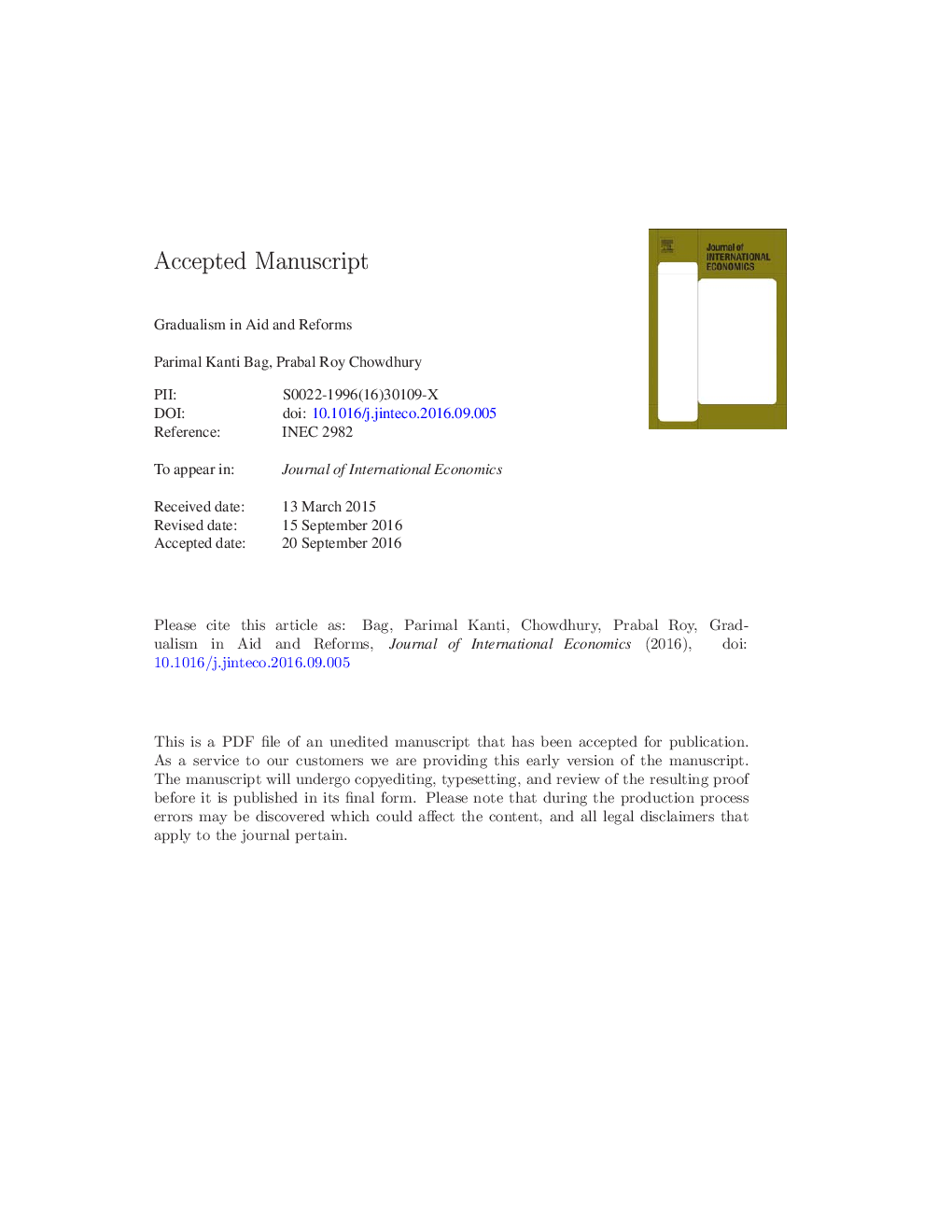| Article ID | Journal | Published Year | Pages | File Type |
|---|---|---|---|---|
| 5100967 | Journal of International Economics | 2016 | 42 Pages |
Abstract
Dynamic strategic interaction between an international donor and a recipient government is analyzed to review the efficacy of aid conditionality for governance reforms in LDCs. It is shown that irrespective of whether the donor can fully commit to the aid program or not, for maximal improvement in governance the aid should be disbursed in increments with each subsequent tranche being conditional on prior reforms, demonstrating aid gradualism. While the attraction of future aid incentivizes authorities to push through reforms, these reforms in turn also make aid diversion less feasible. Further, under full commitment, the optimal aid package may involve offering scope for interim aid diversion to the elite for long-term improvement in governance, with such aid diversion being more likely to happen when the total aid budget is large. With only partial commitment (so that time consistency requires the donor to reconfigure aid in each round), it is shown that (a) interim aid diversion is no longer viable, and (b) both aid and reforms exhibit strong gradualism, or what is known as the starting small and grow later principle in commitment models.
Keywords
Related Topics
Social Sciences and Humanities
Economics, Econometrics and Finance
Economics and Econometrics
Authors
Parimal Kanti Bag, Prabal Roy Chowdhury,
